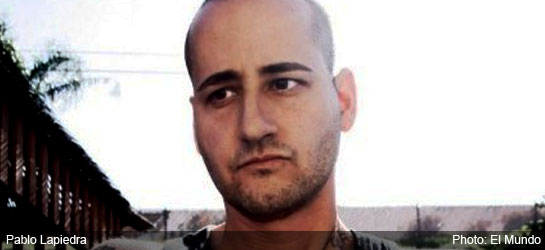
A porn director accused of filming minors in Colombia had been released by Hungarian police in April after evading extradition, said the country’s Ministry of Justice on Thursday.
Spaniard Pablo Lapiedra was arrested in Hungary on December 23, 2011 in relation to child pornography charges, and managed to escape extradition to Colombia twice in the past year because Colombia failed to submit the proper paperwork in due time.
The Hungarian Ministry had originally agreed to Colombia’s request for his extradition, giving a 40-day period to formalize and receive all the documentation needed, and just this week Colombian prosecution expressed their confusion at why this extradition was not being met.
According to a statement released to Spanish news organization Efe, the given deadline was not met and due to lack of “legal possibilities for further detention,” Hungarian authorities had no other choice but to release Lapiedra in April.
Yet another deadline period of 40 days began after this, during which Colombian authorities or Interpol could have issued an international arrest warrant to extradite him, but failed to do so.
Lapiedra has been accused of paying a 16-year old girl to participate in pornographic films between December 2007 and January 2008 in Colombia’s second largest city Medellin, and allegedly recruited girls out of high school to also participate.
The Spanish native was captured in Barcelona in March 2011 and remained in prison until September 2011 when the national court in Spain authorized his extradition to face charges in Colombia. However Lapiedra was freed after posting bail of $135,000 and escaped authorities when he went on the run several months later.
Lapiedra was then captured in Hungary in December when he entered with a false passport just three days after he had jumped bail in Spain.

